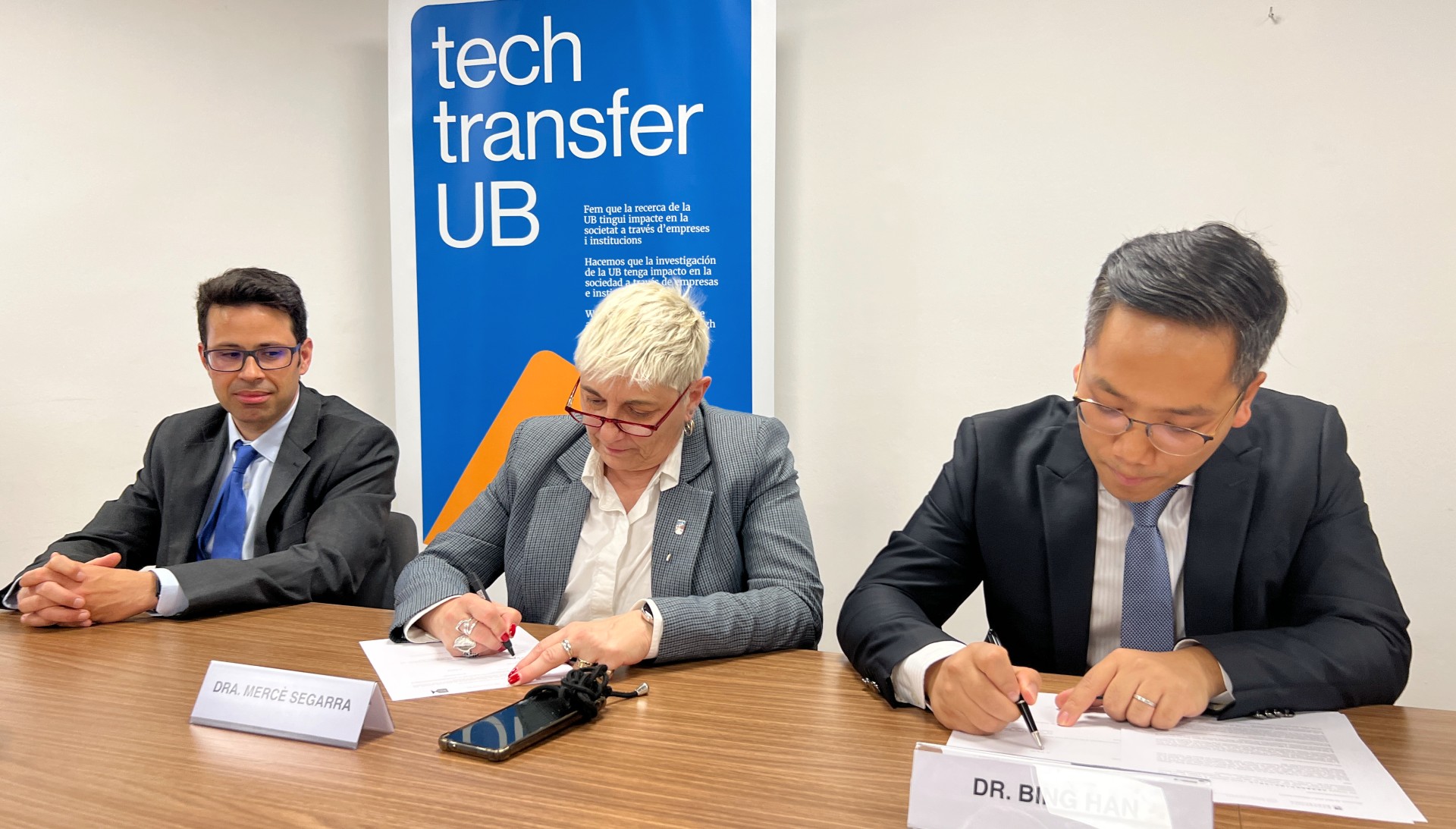
An agreement between the UB and Dimosi Lifescience & Medical enables research into proteins that will help in the prognosis and therapy of lung cancer
The University of Barcelona (UB) has reached an agreement with the Chinese company Dimosi Lifescience & Medical that enables research into proteins that will help in the prognosis and therapy of lung cancer. The research team will be led by Dr. Alfons Navarro Ponz, from the Department of Surgery and Medical and Surgical Specialties of the Faculty of Medicine and Health Sciences of the UB.
This research aims to identify exosomal proteins with potential clinical utility, which can be found in the bloodstream encapsulated in small vesicles. The project also seeks to establish a protocol for the identification of these exosomal proteins with potential biomarker function and their role in carcinogenesis and metastasis.
The agreement between the UB and Dimosi Lifescience & Medical will advance knowledge of the prognostic value of these proteins and lay the foundations for the development of new products for clinical application, so that the Chinese company can market new products to combat lung cancer. The project will start on 1 June 2023 and is expected to run for three years.
Dr Alfons Navarro Ponz is confident that the collaboration can continue beyond this three-year period. “I hope our relationship lasts many, many years, and that we can grow together, expand into new markets and improve the prognosis of lung cancer patients.”
Synergies between universities and companies
During the signing of the agreement, Dr. Bing Han, co-founder and CEO of Dimosi Lifescience & Medical and PhD in Medicine from the University of Barcelona, said he was “very satisfied and happy” with the agreement and stressed the importance of promoting synergies between universities and companies to establish projects that can be beneficial to society.
Likewise, the vice-rector of Entrepreneurship, Innovation and Transfer of the UB, Dr. Mercè Segarra, remarked that developing trust between researchers and companies is “essential.” “For a company, having a researcher who is part of the project is very important because you know that he or she will always be there and will be able to respond and help solve any difficulties that may arise.”
The co-founder and president of Dimosi Lifescience & Medical, Mr. Cui Yao, participated remotely in the signing of the agreement. He thanked Dr Navarro for his professionalism and dedication, and expressed his “confidence” that, thanks to the researcher’s leadership, “the project will be a success.”
Research Group on Oncology and Molecular Embryology
Dr. Alfons Navarro Ponz leads the Research Group on Molecular Oncology and Embryology, a multidisciplinary group involving both basic and clinical researchers (molecular biologists, thoracic surgeons, pathologists, pulmonologists, oncologists) focused on translational research on solid and haematological tumours.
The group’s research lines include: analysis of liquid biopsies and extracellular vesicles secreted by tumours, as well as of their content to identify biomarkers with potential usefulness in the diagnosis and/or monitoring of tumour disease progression; analysis of the relationship between embryogenesis and cancer, assuming that these two processes have many similarities; analysis of non-coding RNAs as biomarkers of relapse and overall survival. In addition, the group is also currently working on the analysis of the potential of organoids generated from patients’ tumour tissue as tools to implement better personalised medicine.
Dimosi Lifescience & Medical
Dimosi Lifescience is a start-up company whose mission is to empower innovation by bringing sciences together and unleashing their full knowledge potential. One of the company’s strategic goals is to build bridges for scientific research cooperation between China and Europe and to offer support and opportunities to more companies and scientists. They also intend to invest in and promote cutting-edge research projects, aiming to advance the development of the field of molecular cancer diagnostics, ultimately benefiting more patients.
Its co-founder and CEO, Dr Bing Han, completed his doctoral thesis within the same research group, which culminated in the presentation of the dissertation Characterization of the non-coding RNA cargo in extracellular vesicles from surgical non-small cell lung cancer patients identifies lncRNA HOTTIP and miR-203a-3p as relapse biomarkers, which may now be continued as part of the present project.

